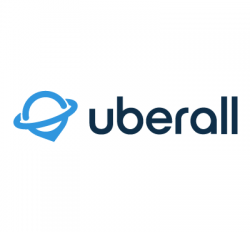Key Takeaways From the Leaked Google Search API Document For Law Firms
Date: May 30, 2024

The SEO world is currently in a frenzy due to a leaked Google Search API document that reveals a lack of transparency from Google about what its algorithm is using as ranking factors. What has been sparking much controversy is that many of the findings within the document contradict statements made by Google Search employees over the years.
What is This Document and Why Does it Matter?
The API document is something that Google uses internally for their Search Team. It exists to help familiarize those working on a project with the data elements available. It appears this document was mistakenly made public briefly, but in that short time, was spread to Hexdocs and was then circulated by other sources, leading to a stream of analysis and speculation from industry professionals. To put it in perspective, no leak of this magnitude or detail has been reported from Google’s Search division before.
Key Takeaways For Law Firms
While there has been a lot revealed from the leaked document revolving around Google’s algorithm, we’ve simplified what we’ve found in our research so far and compiled a list of the key takeaways for law firms. Let’s dive in!
Branding is Key
Rand Fishkin, a leader in the SEO industry stated “Build a notable, popular, well-recognized brand in your space, outside of Google search,” and emphasized how branding matters more than anything else. In Rand’s extensive research and with backing from the evidence of the leaked document, it has been seen that Google has been ranking and sending traffic to big, powerful brands that dominate the web.
If you are a part of a small- to mid-sized law firm, branding can be a way for your firm to stand out – don’t let it fall by the wayside.
Digital PR is More Important Than Ever
Despite Google recently confirming that links are not important, their leaked document proves otherwise. The metric called sourceType is intended to record the quality of the anchor’s source page and is correlated with but not identical to the index tier of the source page. In simple terms, the higher the tier, the more valuable the link. Essentially, this reinforces an older but tried-and-true tenant of SEO: you want your links to come from pages that have fresh content or come from what Google considers “top tier.” This is the reason why getting links from high authority sites such as Law.com or the New York Times equates to better ranking results for your firm. This further emphasizes the importance of having a strong digital PR and backlinking strategy for your firm.
Displaying Author Name May Matter More Than We Thought
Google representatives have previously stated that having an author name within the content on your website does not affect how your site ranks. With that said, the leaked document has revealed that Google does, in fact, store the authors associated with a piece of content, and it will try to determine whether an entity (that is, your law firm brand) is the author of the content. We believe this may have to do with Google’s principles of E.E.A.T. which has been a hot topic in the SEO industry for some time now. This also further emphasizes the importance of your law firm’s branding efforts.
This all ties into branding and digital PR, as previously mentioned. In short, it’s all connected!
Clarification on Demotions
According to the document, content can be demoted for a variety of reasons, some of which include:
- The link does not match the target site
- SERP signals indicating user dissatisfaction
- The page(s) exhibits poor navigation practices or user experience issues
- Exact match domains
- Product reviews
- Location
This again emphasizes the importance of digital PR, and healthy backlinking practices in general. Spamming backlinking practices will not be tolerated by Google. It’s critical for your firm to obtain relevant links from high authority domains to perform successfully within Google search results.
Additionally, it’s been revealed that Google stores at least the last 20 versions of your web pages. So to have a “clean slate,” you probably need to update it more than 20 times. It’s unclear how significant of a change the page would need to be in order to count as a new version, but this is something to keep in mind if you have been impacted negatively by one of the demotions listed above or by a recent algorithm update such as the most recent one from March.
Optimizing Title Tags Are Still Incredibly Relevant
At 9Sail, we have always emphasized the importance of having optimized title tags and meta descriptions. The leaked document reveals that your title tags (titlematchScore) continue to play a critical role in how your law firm’s website shows up in search results. This suggests that how well the page title matches the query is still something that Google is valuing.
Successful Clicks to Your Website Matter
Google representatives have stated that click-through rate, dwell time, and other UX signals don’t contribute to the success of your website ranking. With the leaked API document, this has also been proven to be false. Some metrics that have been revealed that Google measures include:
- badClicks
- goodClicks
- lastLongestClicks
- unsquashedClicks
The document also establishes that users are represented as voters and their clicks are stored as their votes. So, as in an election, the more votes your website has, the better. Essentially, this leaked document has proven that there is very little doubt that Google uses clicks and post-click user behavior as ranking factors.
To sum this all up, Michael King offers incredibly valuable advice. He says, “You need to drive more successful clicks using a broader set of queries and earn more link diversity if you want to continue to rank. Conceptually, it makes sense because a very strong piece of content will do that. A focus on driving more qualified traffic to a better user experience will send signals to Google that your page deserves to rank.”
Domain Authority is Something to Not Be Forgotten
Domain authority is a score that is calculated based on how authoritative your site is. Essentially, the higher your domain authority, the more likely you are to show up higher in search results because your site is seen as a trusted source. Again, this score is closely related to your digital PR efforts and SEO-driven backlinking strategy.
So, how does this relate to the leaked document?
Well, previously there was no evidence that domain authority was a ranking factor– indeed, Google representatives have even told the public that they do not have a website authority score or signal. However, now there is proof that Google does, in fact, have its own domain authority score called “siteAuthority.” So in short, you should continue to work on building the authority of your law firm’s website as it does and will continue to have an impact on how your site ranks in Google search results.
Content Freshness Matters
Having fresh, relevant content has been a focus within Google’s algorithm, as seen with recent changes involving the Helpful Content Updates and various Spam Updates. This has further been proven by the leaked document which revealed that Google will look at the following:
- Dates in the byline (bylineDate)
- URL (syntacticDate)
- On page content (semanticDate)
A Look to the Future
SEO professionals around the world are still analyzing the API document, so it’s likely we’ll gain additional insight and information as time goes on. The good news is that these documents have proven that the strategies most seasoned SEO professionals utilize will continue to get results. This is why it’s so important to work with a trusted SEO partner that will keep up with the evolving trends and keep your firm’s website continuing to rank well within search results. If you’re interested in seeing how SEO may benefit your firm, don’t hesitate to reach out!
Valuable Resources
- Secrets from the Algorithm: Google Search’s Internal Engineering Documentation Has Leaked
- An Anonymous Source Shared Thousands of Leaked Google Search API Documents with Me; Everyone in SEO Should See Them
- HUGE Google Search document leak reveals inner workings of ranking algorithm
- 14000+ Google Search Ranking Features Leaked
















